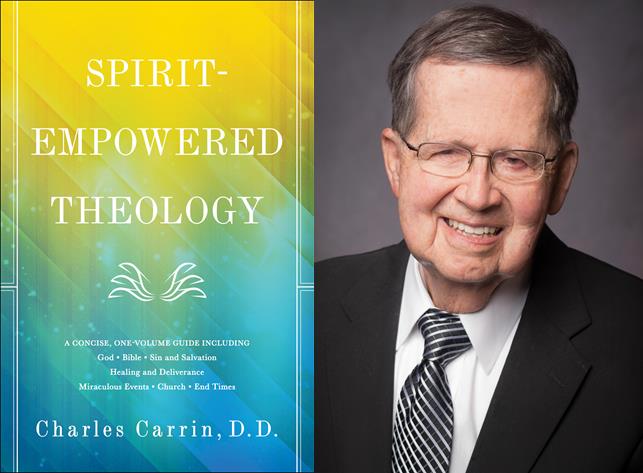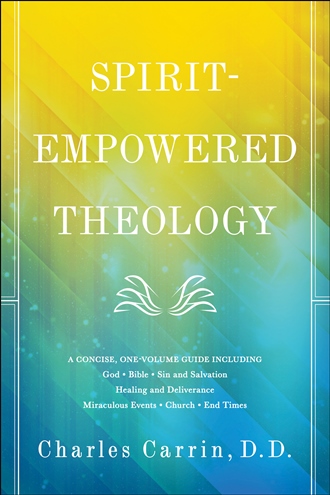Interview with Charles Carrin about his book Spirit-Empowered Theology
 PneumaReview.com: Why did you choose to write a book on theology?
PneumaReview.com: Why did you choose to write a book on theology?
Charles Carrin: I had a specific God-instruction to write a “charismatic catechism” for the benefit of Spirit-filled believers who had no such resource. I began working and the book assumed the nature of a theological-treatise. There are 300 questions and answers on a progression of 18 sub-topics, beginning with “Who Is God?,” and including questions about the Kingdom, the Church, the Bible, Mankind, Israel, Church History, Spiritual Gifts, the Devil/Demons, and Significant People. A beneficial feature of the book is that it can be opened at any page and the reader can begin studying a “capsule” of important Christian truth. The period of study can effectively be three minutes or three hours.
PneumaReview.com: Whom do you feel will benefit the most from this book?
Charles Carrin: There is something for every age and specialty-interest. Youth, middle-aged, seniors, will find an introduction to the Bible, Christianity, church history, and other important information. It will be of special help to the new Christian who is just beginning their learning process of Kingdom facts, or the long-time believer who needs to re-fresh his Christian education.
PneumaReview.com: How did you select the subjects that you included in the book?

Spirit-Empowered Theology (Chosen, 2017).
Charles Carrin: There were two motivations: A Catechism contains a progression of theological and historical topics. The format reads in an expanding way. One topic leads into another and as far as possible I pursued that development of thought. Themes were chosen in the hope that readers would continue pursuing them beyond the Catechism. Secondly, I prayed, seeking God’s direction for the fields I covered.
PneumaReview.com: Why did you include entries about things outside of the Bible, such as events and people in post apostolic church history?
Charles Carrin: I have been in ordained ministry almost 70 years and have had opportunity for long-range observations of strengths and failures among believers. Most Christians, including many pastors, are woefully uninformed about their own church history. In brief, I have included such historical facts as Emperor Theodosius decreeing in 380 A.D. that only those churches accepting Imperial endorsement and known as Roman Catholic would be recognized as official. All others would be heretic. Modern Christians need to know that there were more Bishops who boycotted this decree than accepted it. Even so, the minority was declared “official” and the others heretic. My hope is that the reader will be motivated to explore the church’s historical field far beyond what I have written. Most Protestants are unaware of their own antiquity.
Category: Spirit, Spring 2017


